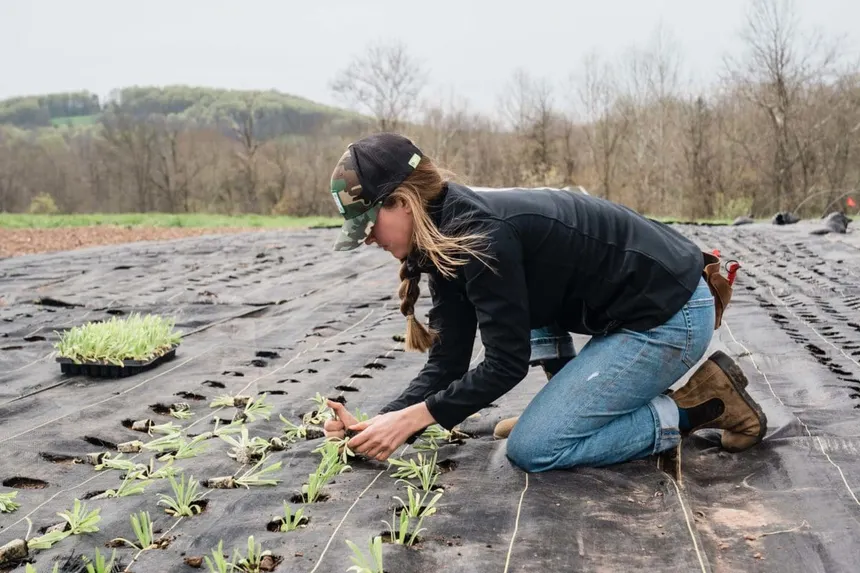In a world grappling with climate change and a rapidly growing population, the quest for sustainable agriculture and robust food security has never been more urgent. It’s not just about growing more food; it’s about growing it smarter, fairer, and in a way that safeguards our planet for generations to come.

Understanding the Intertwined Challenge
Food security, at its core, means that all people, at all times, have physical, social, and economic access to sufficient, safe, and nutritious food. However, this fundamental right is increasingly threatened by a confluence of factors:
- Climate Change’s Impact:
- Erratic weather patterns, including droughts, floods, and extreme temperatures, are disrupting traditional farming practices.
- These disruptions lead to crop failures, livestock losses, and increased food price volatility.
- Keywords: climate change, extreme weather, crop failure, food price.
- Resource Depletion:
- Intensive agricultural practices are depleting soil fertility, water resources, and biodiversity.
- Deforestation and land degradation exacerbate these problems, further undermining our ability to produce food.
- Keywords: soil fertility, water resources, deforestation, land degradation.
- Population Growth:
- The global population continues to rise, placing increasing pressure on food production systems.
- Meeting the food demands of a growing population requires innovative and sustainable-solutions.
- Keywords: population growth, food demand.

The Path to Sustainable Agriculture
Sustainable agriculture offers a pathway to address these challenges and build a more resilient food system. It’s about adopting practices that:
- Enhance Environmental Health:
- Promoting soil health through practices like crop rotation, cover cropping, and reduced tillage.
- Conserving water resources through efficient irrigation and rainwater harvesting.
- Protecting biodiversity by reducing pesticide use and promoting agroforestry.
- Sub points:
- Crop rotation benefits.
- Cover cropping methods.
- Agroforestry implementation.
- Keywords: soil health, water conservation, biodiversity, agroforestry.
- Ensure Economic Viability:
- Supporting farmers with access to markets, fair prices, and financial incentives for sustainable practices.
- Investing in research and development to improve crop yields and reduce input costs.
- Keywords: farmer support, market access, economic viability.
- Promote Social Equity:
- Ensuring equitable access to food for all, particularly vulnerable populations.
- Empowering smallholder farmers and promoting gender equality in agriculture.
- Sub points:
- Food access programs.
- Small holder farming support.
- Gender equality in farming.
- Keywords: food equity, smallholder farmers, gender equality.

Key Policies and Strategies
To achieve sustainable agriculture and food security, governments and organizations must implement a range of policies and strategies:
- Investing in Research and Innovation:
- Developing climate-resilient crop varieties and sustainable farming technologies.
- Promoting research on agroecology and integrated pest management.
- Keywords: climate-resilient crops, agroecology, integrated pest management.
- Strengthening Extension Services:
- Providing farmers with access to information, training, and technical assistance.
- Promoting the adoption of sustainable farming practices.
- Keywords: extension services, farmer training, technical assistance.
- Creating Supportive Policy Frameworks:
- Implementing policies that incentivize sustainable agriculture and discourage harmful practices.
- Establishing clear regulations on land use, water management, and pesticide use.
- Keywords: policy frameworks, sustainable incentives, regulations.
- Promoting Sustainable Consumption:
- Educating consumers about the importance of sustainable food choices.
- Reducing food waste and promoting healthy diets.
- Keywords: sustainable consumption, food waste, healthy diets.
- Enhancing Global Cooperation:
- Facilitating knowledge sharing and technology transfer between countries.
- Supporting developing countries in their efforts to build sustainable food systems.
- Keywords: global cooperation, knowledge sharing, technology transfer.
- Technological integration:
- The use of precision agriculture, and the use of IOT devices to monitor soil conditions, and water usage.
- The use of data analytics to predict crop yields, and optimize resource usage.
- Keywords: precision agriculture, IOT, data analytics.
- Emphasis on local food systems:
- Supporting local farmers markets, and community supported agriculture.
- Reducing the carbon footprint of food transportation.
- Keywords: local food systems, farmers markets, carbon footprint.
The Future of Food
The future of food security depends on our ability to transition to sustainable agricultural practices. This requires a collective effort from governments, farmers, businesses, and consumers. By embracing innovation, promoting equity, and safeguarding our planet, we can create a food system that nourishes both people and the planet.
Key Takeaways:
- Sustainable agriculture is essential for ensuring food security in the face of climate change and population growth.
- A range of policies and strategies are needed to promote sustainable agriculture, including investments in research, extension services, and supportive policy frameworks.
- Consumer choices play a crucial role in driving the transition to sustainable food systems.
By working together, we can cultivate a future where everyone has access to safe, nutritious, and sustainable food.
Do Follow USA Glory For More Updates.






